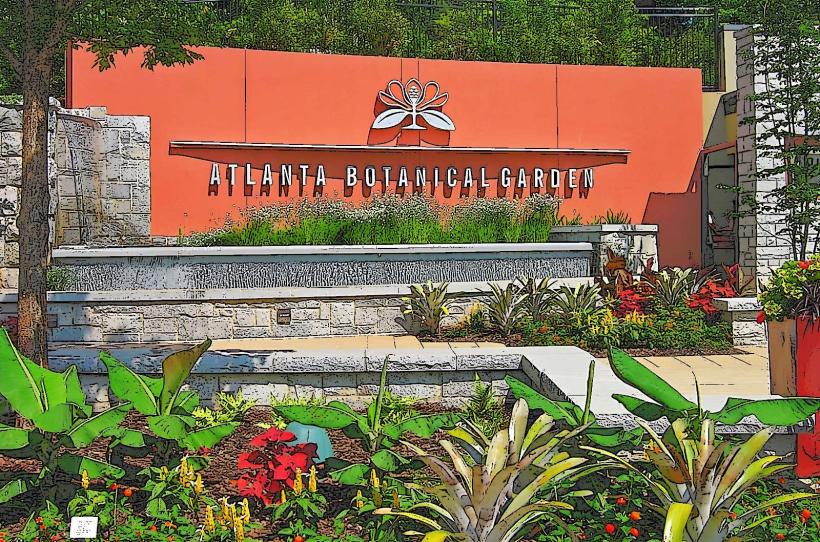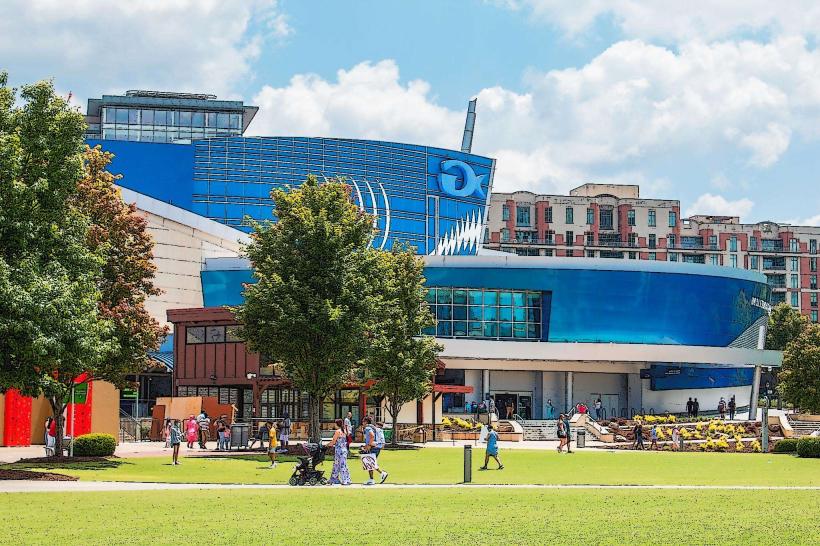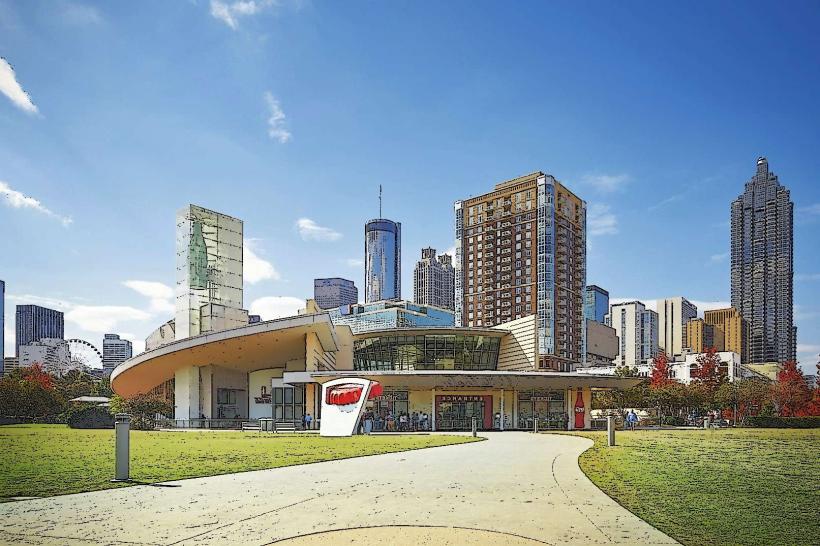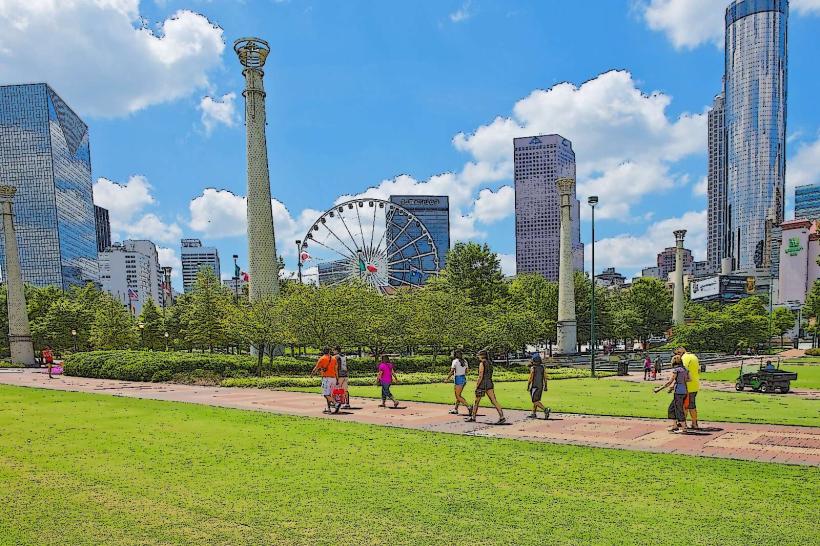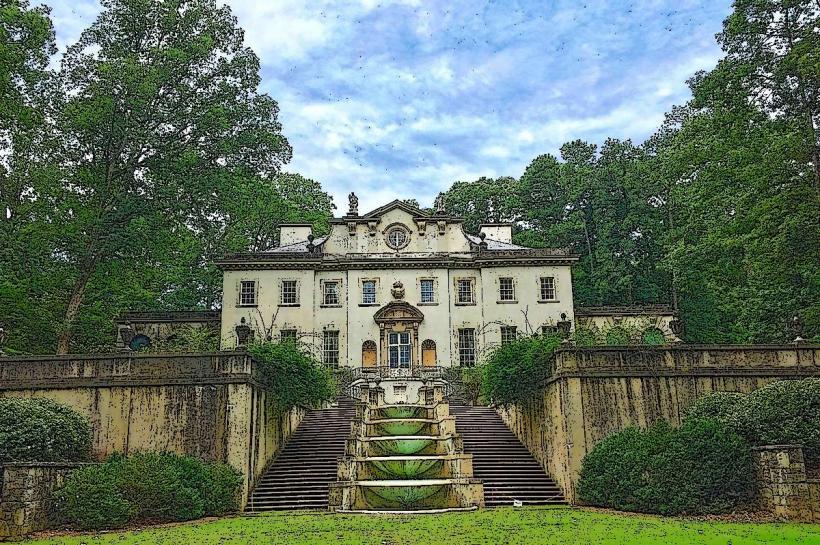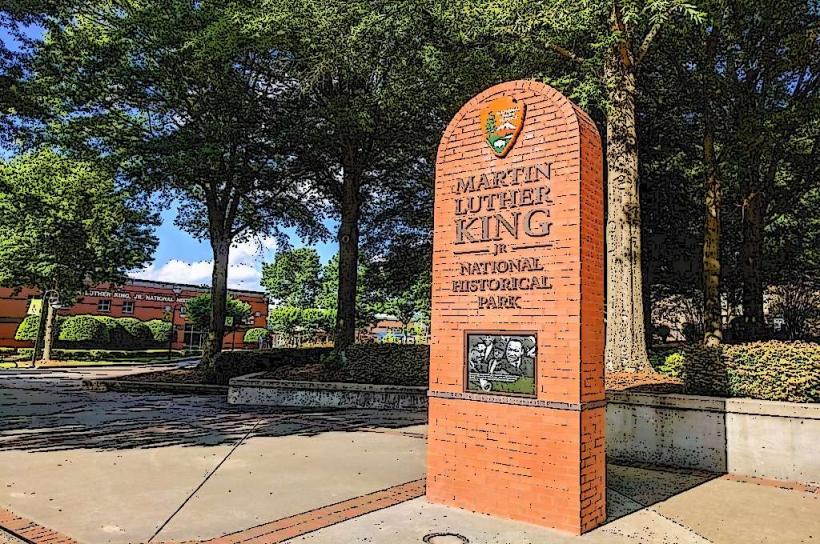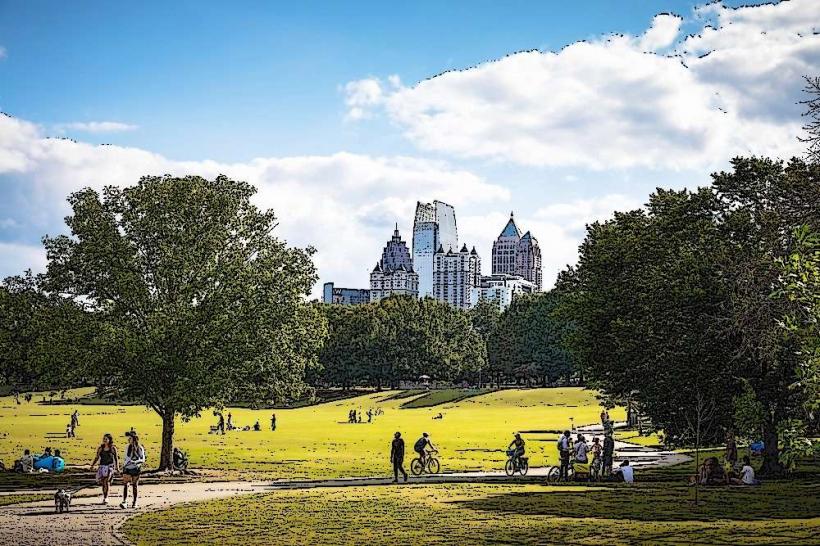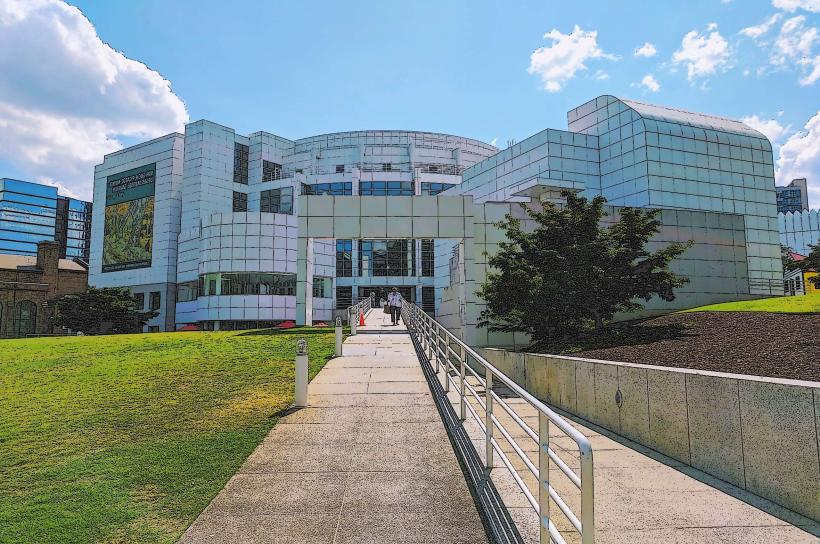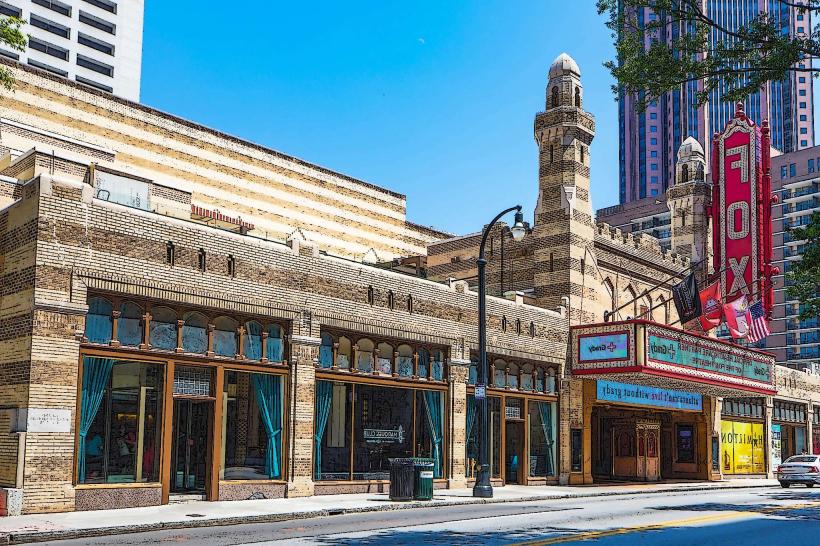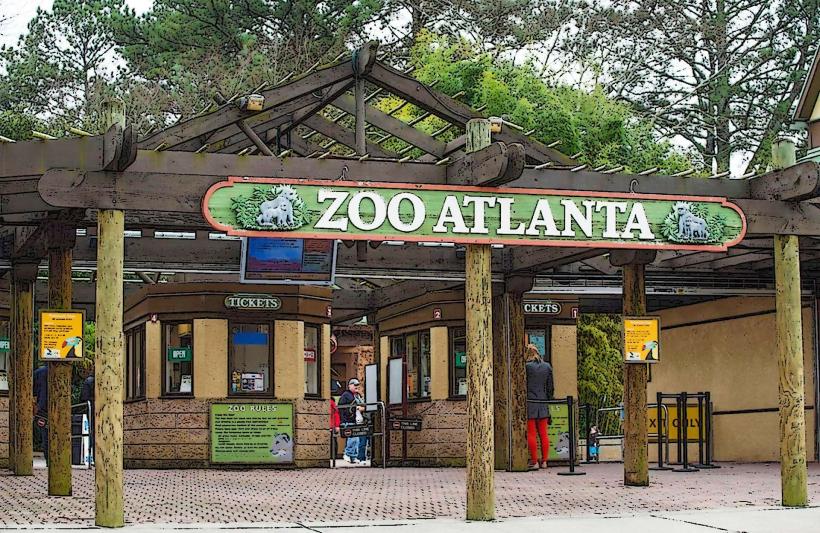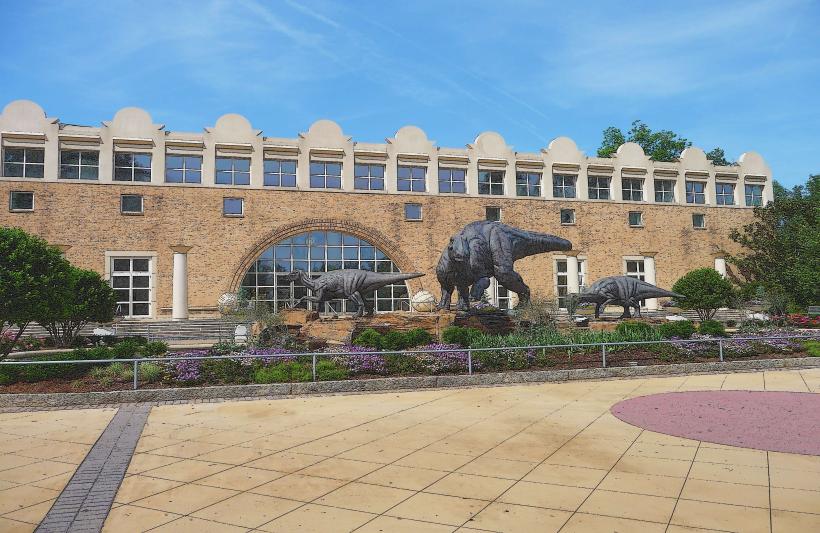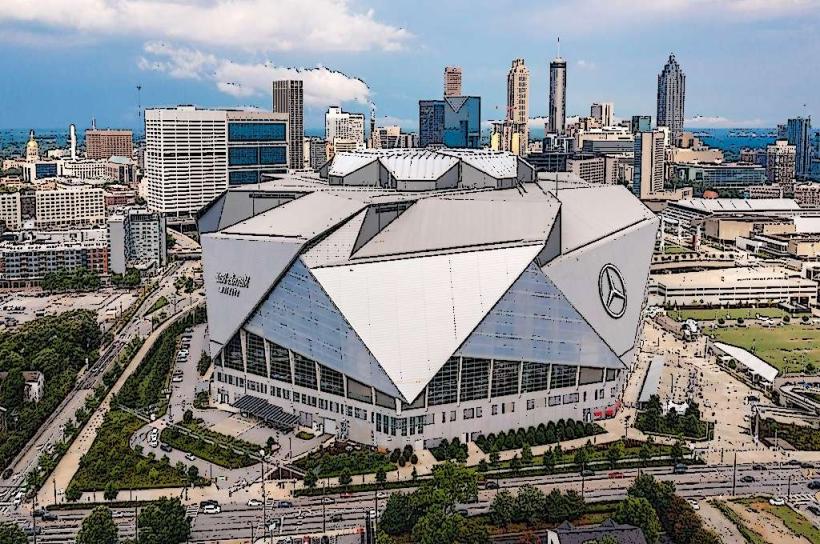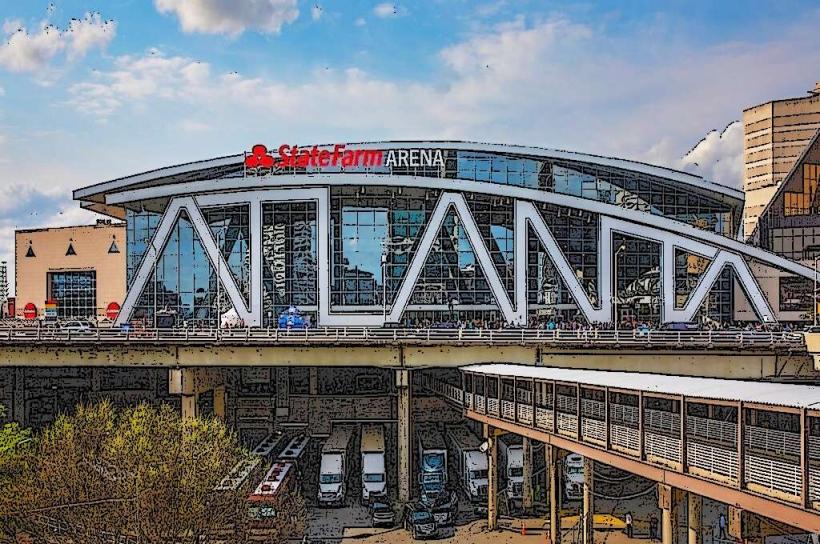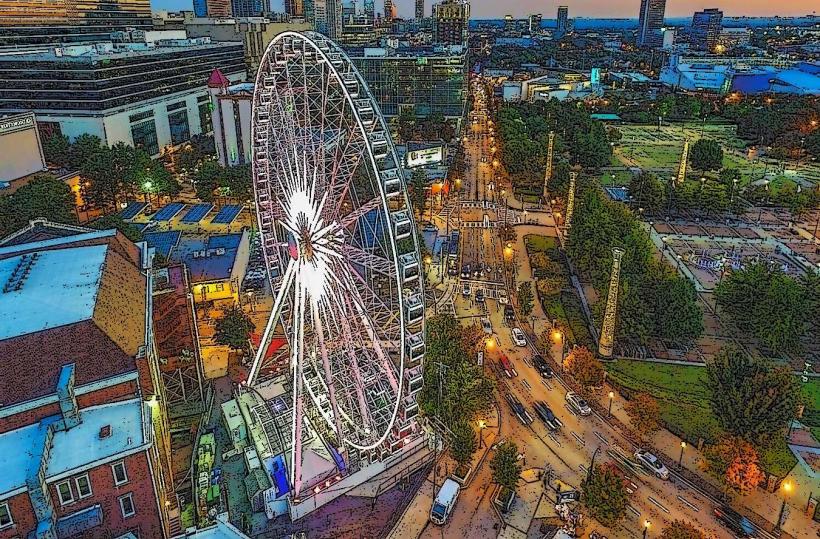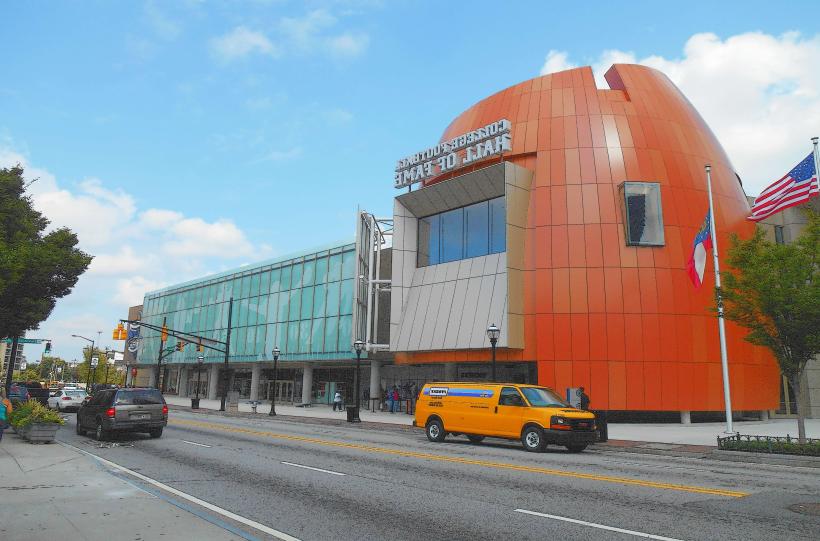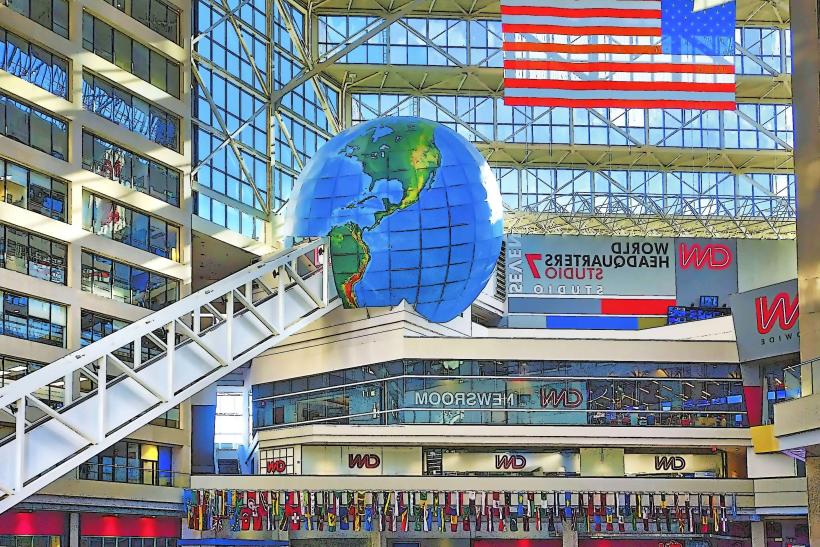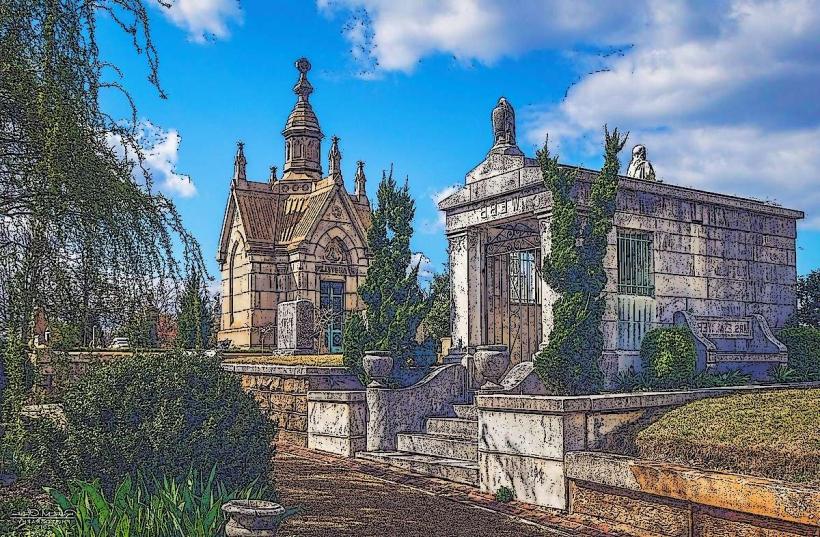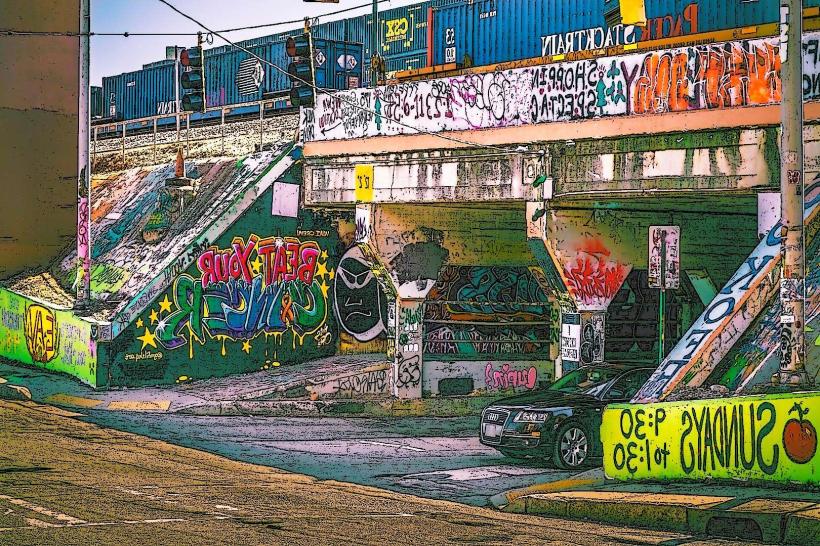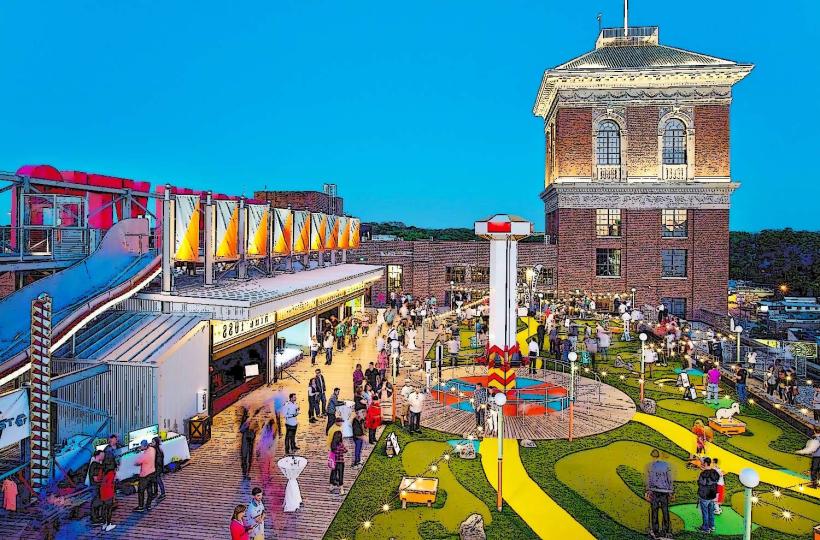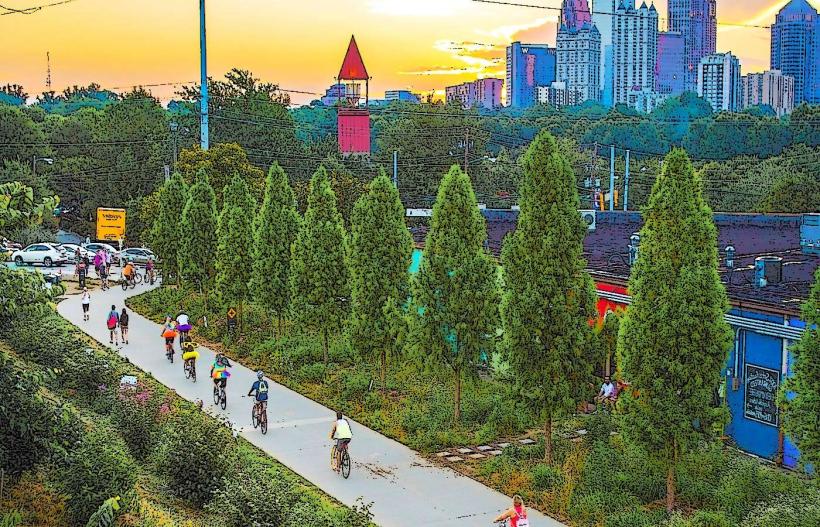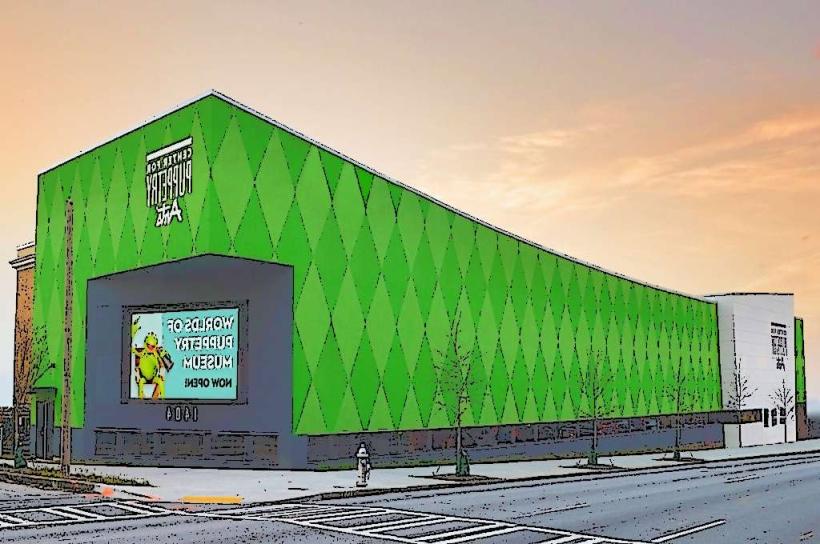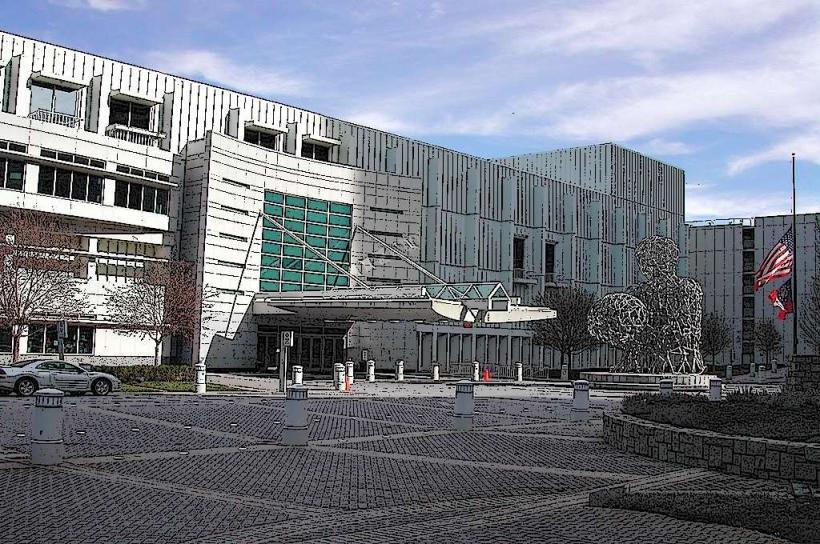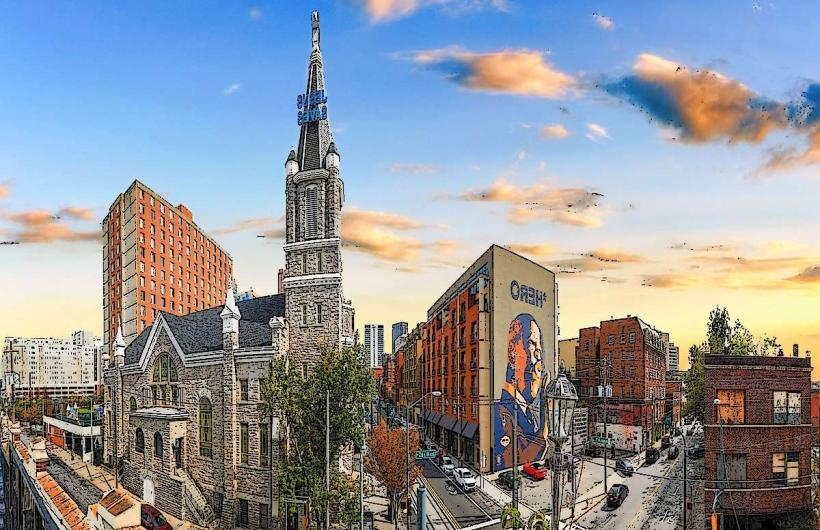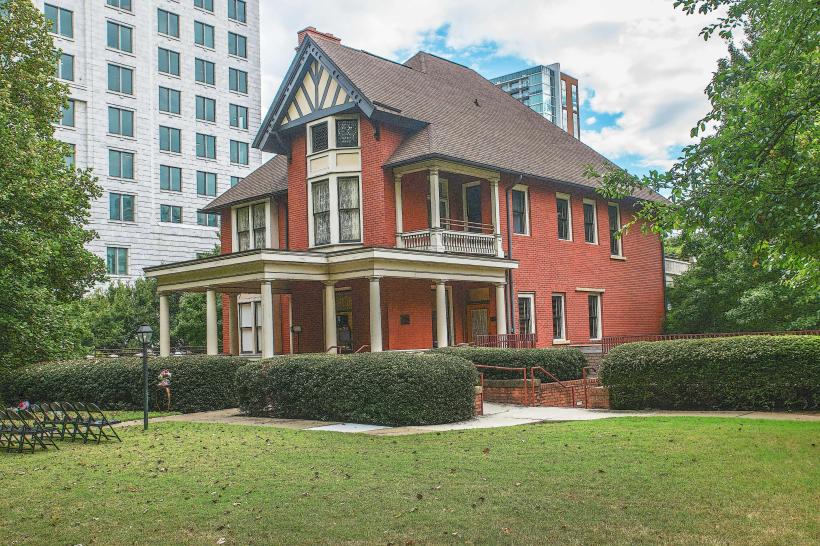Information
Landmark: Jimmy Carter Presidential Library and MuseumCity: Atlanta
Country: USA Georgia
Continent: North America
Jimmy Carter Presidential Library and Museum, Atlanta, USA Georgia, North America
The Jimmy Carter Presidential Library and Museum is a research institution and museum dedicated to the life and presidency of Jimmy Carter, located in Atlanta, Georgia.
It houses presidential papers, artifacts, and exhibits related to the 39th U.S. President.
Visual Characteristics
The library and museum complex consists of two primary buildings. The main building, constructed of precast concrete panels and glass, features a modern, rectilinear design. It is approximately 3 stories in height. The adjacent archival building is a lower, more utilitarian structure. The grounds include landscaped areas with mature trees and open lawn spaces.
Location & Access Logistics
The site is situated at 441 John Lewis Freedom Parkway NE, Atlanta, GA 30307. It is approximately 2.5 kilometers east of downtown Atlanta. Access is via John Lewis Freedom Parkway. Parking is available on-site in a dedicated lot. Public transport options include the MARTA bus line 10, which stops at the intersection of John Lewis Freedom Parkway and Boulevard NE, a short walk from the entrance.
Historical & Ecological Origin
Construction of the Jimmy Carter Presidential Library and Museum was completed in 1986. The architect was J. W. Robinson. The original purpose was to preserve and make accessible the papers, artifacts, and other records of Jimmy Carter's presidency and post-presidency. The site was formerly part of the Historic Oakland Cemetery grounds.
Key Highlights & Activities
Visitors can explore exhibits detailing Carter's life, political career, and post-presidency humanitarian work. Specific exhibits include a replica of the Oval Office, displays on the Camp David Accords, and information on the Carter Center's global initiatives. Research access to archival materials is available by appointment.
Infrastructure & Amenities
Restrooms are available within the museum. Limited shaded areas are present in the outdoor grounds. Cell phone signal (4G/5G) is generally reliable on the premises. No on-site food vendors are present, but dining options are available in nearby neighborhoods.
Best Time to Visit
For optimal lighting on exhibits, midday hours (10:00 AM to 2:00 PM) are recommended. The best months for visiting are April through June and September through October, offering moderate temperatures. No tide considerations apply.
Facts & Legends
A unique aspect of the museum is its collection of over 27,000 peanut-related artifacts, reflecting Carter's background as a peanut farmer. The museum also houses a significant collection of political cartoons and campaign memorabilia.
Nearby Landmarks
- Oakland Cemetery - 0.3km Southwest
- Martin Luther King, Jr. National Historical Park - 1.5km Northeast
- Centennial Olympic Park - 2.8km West
- World of Coca-Cola - 3.0km West
- Georgia Aquarium - 3.1km West

